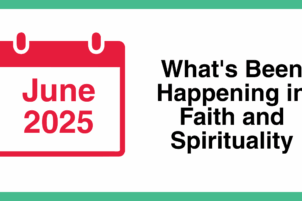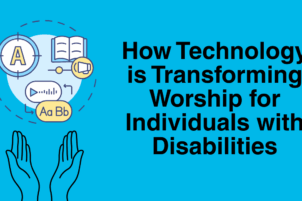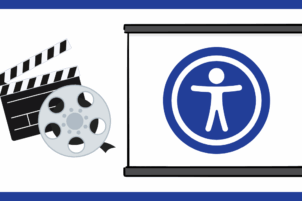The month of May is Ehlers Danlos Syndromes (EDS) and Hypermobility Spectrum Disorders (HSD) Awareness Month. Ehlers Danlos Syndromes are genetic connective disorders generally characterized by joint hypermobility, joint instability, skin hyperextensibility, abnormal scarring, structural weakness, etc. EDSs are currently classified into thirteen types. People with hypermobility spectrum disorders have similar joint symptoms but do not have connective tissue involvement. Dermatosparaxis Ehlers Danlos Syndrome is more common in the Ashkenazi Jewish population than in the general population. In addition, though there has been no official study, Hypermobile Ehlers Danlos Syndrome is anecdotally noted to have a higher incidence in the Ashkenazi Jewish population.
For two communities in particular – healthcare professionals and undiagnosed patients – EDS and HSD Awareness Month is a crucial health communication campaign. Diagnoses typically take years or decades. I was not diagnosed with Hypermobile Ehlers Danlos Syndrome until I was 21 years old. Though EDSs and HSDs have no cure, symptom treatment and preventative care are essential to maintaining one’s quality of life.
Current medical school curriculum undereducates healthcare professionals about the prevalence and multisystemic nature of Ehlers Danlos Syndromes and hypermobility spectrum disorders. Due to the fragmented structure of the American healthcare system, few doctors look at a patient’s health from a full-body perspective. One must see different specialists for different organs and body systems, and doctors rarely communicate with each other.
Since patients with EDSs and HSDs present with seemingly unconnected health challenges, many are labeled as hypochondriacs. Medical gaslighting, when medical professionals dismiss or trivialize a person’s symptoms, is rampant amongst the healthcare system. It’s rare to find individuals with these conditions who haven’t had their symptoms misattributed to anxiety, hormones, or growing pains.
Medical trauma from medical gaslighting and the frustration and cost of navigating the American healthcare system can lead patients to search for answers independently. I was once one of these individuals – desperate for an explanation and treatment for my pain. My personal experience substantiates my belief that awareness months are crucial for undiagnosed individuals, as education on EDSs and HSDs can empower patients to stand up to medical gaslighting and take control of their health.
I first learned about Hypermobile Ehlers Danlos Syndrome from a contestant in the 2017 Miss Maryland pageant. While many of her symptoms seemed similar to mine – autonomic dysfunction, joint pain, and hypermobility – I thought her condition seemed more severe than mine, so I dismissed it as a possibility.
After a few years, I revisited the 2017 Hypermobile Ehlers Danlos diagnostic criteria and realized it may be an answer for my ailments. Part of the diagnostic criteria involves ruling out alternate rheumatological conditions, so I asked my primary care physician for a referral to see a rheumatologist. I filled out the 2017 diagnostic criteria and brought it to my appointment, prepared to advocate for myself. After an extensive review of my medical history, many vials of blood, and a brush with the Beighton Score, I was officially diagnosed with hEDS.
My experiences as an undiagnosed child also endowed me with an understanding of the importance and limitations of awareness in communities. I was stereotyped as fragile because almost every time I’d recover from an injury, another one would occur. My peers consistently questioned the validity of my injuries. They accused me of faking, both behind my back and to my face. They claimed that I was using my injuries to avoid physical education class and other physical activities. Instead of compassion and support, my injuries were frequently met with bullying and disbelief.
This behavior, while not exclusive to the Jewish community, unfortunately pervades it. I think back to my Jewish overnight camp experience where I was accused of faking ankle injuries to avoid climbing the large hill separating the cabins and dining hall. Why was teasing and bullying socially acceptable? As Jews, we are taught to question everything, but should that extend to believing our community members’ pain? Is there no room for empathy towards the unknown?
Even though I didn’t understand the scope of my condition or why I had so many injuries, I knew that I experienced daily pain and symptoms that my peers did not. However, my peers’ constant accusations and medical professionals’ gaslighting taught me to subconsciously distrust myself, something I’m actively working to remedy. Now, with an official diagnosis, I am relieved by the recognition that my symptoms and pain are real. Unfortunately, there are still many individuals with undiagnosed Ehlers Danlos Syndromes or hypermobility spectrum disorders stuck in this cycle of disbelief and distrust.
My peers shouldn’t have needed to be aware of the connective tissue disease that left me vulnerable to frequent injuries to believe me. Awareness is essential for patients and healthcare providers, but the community shouldn’t need people to disclose their health conditions to believe their pain and support them.
One requires an official diagnosis for medical support; however, one should not need an official diagnosis for support from their Jewish community. Awareness is an important aspect of helping those with Ehlers Danlos Syndromes and hypermobility spectrum disorders, but it is not the end of inclusion and belonging efforts.









Great article Becca!
Thanks for the useful information.
Interesting article! Thank you for sharing!
Thanks Becca. Will be sharing with the Alpha Chis I know and othe friends to make them aware and hopefully help others LITB
Thank you for speaking up! It took me 48 years to finally figure out my diagnosis. I can tell you the journey has been unbelievably difficult. Yes, the physical toll EDS has taken on my life has been substantial, but the emotional toll has been far greater. I can’t emphasize enough how great the impact of the dismissive attitudes and behaviors of medical professionals, peers, and family over the years has been. Depression and isolation among individuals who suffer with rare genetic disorders (“Spoonies” as we refer to ourselves), such as hEDS or HDS, is one of the greatest challenges. So Bravo to you for bringing this into the light! Awareness and education are paramount. The more people who know, the more access we may have to the comprehensive treatments, and continuity of services we so desperately need: People need to understand that while hEDS may be invisible to them, it is a “connective tissue disorder” that effects every aspect of your body inside and out, and is therefore associated with a multitude of co-morbid conditions such as POTTS, MCAS, Fibromyalgia, IBS, and a host of other disorders…
I don’t know anyone with EDS who hasn’t been gaslighted- especially by their own family. When you family are also doctors and Jewish people just assume their the authority and bullying makes it a nightmare. Jews need to start counting how many of us have eds and then start helping. There’s also a higher prevalence of suicide and suicidality amongst eds especially when also having comorbid conditions mcas, dysautomnia etc. it’s not inherent- society ignored us or worsr